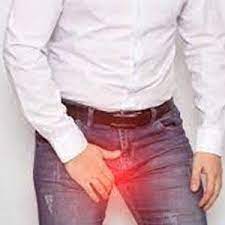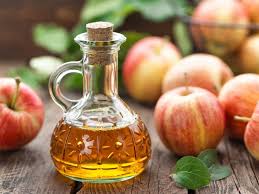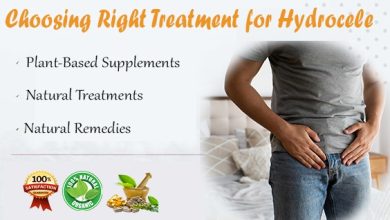Does Apple Cider Vinegar Work for Hydrocele? Truth Behind the Natural Remedy

Hydrocele is a common condition affecting males, particularly infants and older men. It involves the accumulation of fluid in the scrotum, leading to swelling and discomfort. While medical treatments such as surgery (hydrocelectomy) or aspiration are widely recognized, many individuals are turning to natural remedies in search of relief. Among these, apple cider vinegar (ACV) has gained popularity as a potential home treatment. But the critical question remains: Does apple cider vinegar work for hydrocele?
The possible benefits of apple cider vinegar for hydrocele, the science behind it, and whether it truly stands up as an effective natural solution.
Understanding Hydrocele
Before delving into apple cider vinegar, it’s essential to understand what a hydrocele is and how it affects the body.
What Is a Hydrocele?
A hydrocele is a fluid-filled sac around a testicle, often leading to swelling in the scrotum. It can occur on one or both sides and is generally painless unless it becomes very large or infected.

Types of Hydrocele
- Communicating Hydrocele: Common in infants, caused by an open connection between the abdomen and scrotum.
- Non-communicating Hydrocele: Occurs when fluid is trapped in the scrotum without any abdominal connection, common in older men due to injury, inflammation, or infection.
Symptoms of Hydrocele
- Painless swelling in one or both testicles
- A feeling of heaviness in the scrotum
- Discomfort that increases with activity
- In some cases, infection or inflammation may cause pain
Common Treatments
- Observation (in infants, it may resolve on its own)
- Surgical intervention (hydrocelectomy)
- Aspiration (fluid drainage, typically temporary)
- Treatment of underlying infections or conditions
What Is Apple Cider Vinegar?
Apple cider vinegar is a type of vinegar made from fermented apple juice. Rich in acetic acid and various antioxidants, it has been used for centuries in natural medicine to address issues such as inflammation, infections, and skin problems.

Components of Apple Cider Vinegar
- Acetic acid – Antimicrobial and anti-inflammatory properties
- Potassium – May support fluid balance
- Antioxidants – Helps reduce oxidative stress
- Enzymes and probiotics (in raw, unfiltered ACV)
Why Do People Use Apple Cider Vinegar for Hydrocele?
Supporters of apple cider vinegar suggest that its anti-inflammatory, antimicrobial, and circulation-boosting properties can help reduce swelling and support lymphatic drainage, potentially making it helpful for hydrocele.
Related Article: Natural Remedies For Hydrocele Let’s Start With Detail
Here’s how people believe ACV might help:
1. Reduces Inflammation
Hydrocele can sometimes be associated with inflammation due to trauma or infection. ACV is widely believed to have anti-inflammatory effects when applied topically or taken internally.
2. Improves Fluid Drainage
Some proponents claim that ACV supports the lymphatic system and may help drain trapped fluid from the scrotum by enhancing blood circulation.
3. Balances pH Levels
ACV is often used to balance the body’s internal pH. While evidence for this is limited, advocates believe a healthier pH environment may discourage inflammation or fluid buildup.
Related Article: 5 Simple Tips to Reduce Hydrocele Naturally
4. Antimicrobial Properties
In the case of hydroceles linked to infections (like epididymitis), ACV’s natural antibacterial and antifungal properties are thought to offer mild benefits.
How Is Apple Cider Vinegar Used for Hydrocele?
There are two primary methods by which people use apple cider vinegar to attempt managing hydrocele symptoms:
A. Topical Application
Some individuals apply diluted ACV directly to the swollen area, claiming it helps reduce fluid buildup and inflammation.
Related Article: Natural Home Remedy To Shrink Hydrocele: Proven And Effective
Method:
- Mix 1 part raw ACV with 2 parts warm water.
- Soak a clean cloth or cotton pad in the mixture.
- Gently apply to the scrotum for 10–15 minutes.
- Repeat 1–2 times daily.
Caution: ACV is acidic. Always dilute it before use and never apply it to broken or irritated skin.
B. Oral Consumption
Drinking diluted ACV is believed to improve overall health and possibly reduce swelling through its systemic anti-inflammatory effects.
Method:
- Add 1 tablespoon of raw, unfiltered ACV to a glass of warm water.
- Drink once or twice daily, preferably before meals.
- Optional: Add honey for taste and additional antioxidant support.
Note: Always consult a healthcare provider before starting oral ACV, especially if you have digestive issues or are on medication.
Related Article: Types of Hydrocele Explained Clearly: What You Need to Know
Scientific Evidence: Does It Really Work?
As of now, there is no clinical research or peer-reviewed study that directly supports apple cider vinegar as an effective treatment for hydrocele.
What the Research Does Say:
- Anti-inflammatory properties: Studies show ACV can reduce inflammation in some conditions, but these results are primarily in skin or digestive disorders.
- Circulation support: Some evidence suggests ACV may improve cardiovascular health, but its effects on local fluid retention are unverified.
- Antimicrobial action: ACV has proven to be antimicrobial in vitro (in lab settings), especially against bacteria like E. coli and Candida species.
Limitations of ACV in Treating Hydrocele:
- Lack of human trials specific to hydrocele
- No evidence it can remove fluid from a closed sac
- May irritate sensitive skin if used topically
- Could interact with medications or cause digestive upset if taken orally
Testimonials and Anecdotal Evidence
While scientific research is lacking, many people turn to online forums, natural health blogs, and home remedy websites to share their experiences. Some report mild improvement in swelling or comfort, while others see no change.
Related Article: What is the Best Treatment for Hydrocele in Adults?
Here are a few common themes:
Reported Benefits:
- Slight reduction in swelling over weeks
- Feeling of “lightness” or reduced discomfort
- Helpful when combined with other remedies (like turmeric or castor oil)
Common Complaints:
- No noticeable change after weeks of use
- Skin irritation when used topically
- Nausea or stomach discomfort from drinking ACV
Natural Alternatives to Apple Cider Vinegar for Hydrocele
If you’re exploring natural approaches, several other remedies are often discussed:
1. Castor Oil Packs
Castor oil is known for reducing inflammation and improving lymphatic flow. Applied topically with a warm compress, it’s a popular hydrocele remedy.
2. Turmeric
Turmeric contains curcumin, a powerful anti-inflammatory compound. Taken as a supplement or mixed in warm milk, it may help reduce swelling.
3. Epsom Salt Baths
A warm bath with Epsom salts can promote circulation and soothe discomfort.
4. Herbal Supplements
Herbs like Punarnava (used in Ayurvedic medicine) are believed to help reduce fluid retention.
5. Supportive Underwear
Wearing supportive garments can reduce discomfort from hydrocele swelling, particularly during physical activity.
When to See a Doctor
Although exploring natural remedies like apple cider vinegar may offer comfort or a sense of control, hydrocele often requires medical evaluation, especially if:
- The swelling increases in size
- Pain or discomfort becomes severe
- There is redness, heat, or fever (signs of infection)
- It persists beyond a few months in adults
Ignoring a chronic hydrocele can sometimes mask more serious underlying conditions such as testicular tumors, infections, or hernias.
Final Verdict: Does Apple Cider Vinegar Work for Hydrocele?
The honest answer is: There’s no scientific evidence to confirm that apple cider vinegar can effectively treat or reduce hydrocele.
While its anti-inflammatory and antimicrobial properties make it useful for various conditions, the mechanism of hydrocele—fluid trapped in a sac around the testicle—cannot be resolved by vinegar alone. It may offer mild symptomatic relief for some individuals when used topically or internally, but it is not a cure.
If you’re considering ACV as a complementary remedy, do so with caution and realistic expectations. It should not replace medical evaluation, especially if your condition worsens or interferes with daily life.
Conclusion: A Natural Ally, Not a Standalone Cure
Hydrocele can be uncomfortable, and it’s understandable why many seek natural options before turning to surgery. Apple cider vinegar, with its rich tradition in holistic wellness, seems promising on the surface—but lacks direct scientific validation for hydrocele treatment.
If you’re drawn to natural methods, apple cider vinegar may play a supportive role in your wellness routine, especially when combined with other remedies, good nutrition, and medical advice. However, remember that hydrocele is a structural condition, and professional evaluation is essential to ensure long-term health.
Quick Tips for Using Apple Cider Vinegar Safely
- Always dilute ACV before applying or drinking
- Use raw, unfiltered vinegar with “the mother”
- Avoid applying to broken or irritated skin
- Monitor for side effects like skin burning or stomach upset
- Discuss with your doctor if you’re on medications, especially for blood pressure or diabetes
Frequently Asked Questions (FAQs)
Q1: Can ACV shrink a hydrocele completely?
No. There’s no evidence it can remove the fluid or repair the sac.
Q2: How long should I try using ACV for hydrocele?
If trying it, limit use to a few weeks. If no improvement is seen, seek medical advice.
Q3: Is apple cider vinegar safe for children with hydrocele?
No. Children should not be treated with ACV without strict medical supervision.
Q4: Can ACV prevent hydrocele from forming?
There’s no proof that ACV has a preventative effect.




